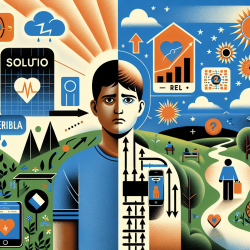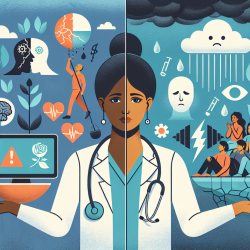Introduction
The COVID-19 pandemic has not only affected physical health but has also exacerbated existing social inequities, particularly in urban centers like Chicago and New York City. A recent study titled A Tale of Two Cities During the COVID-19 Pandemic: Evaluating Food Insecurity in Chicago and New York City sheds light on the increased food insecurity among Black, Indigenous, and People of Color (BIPOC) communities. This research offers valuable insights that can be leveraged to improve outcomes in online therapy services, especially for children.
Understanding the Research
The study utilized a Social Determinants of Health (SDOH) framework to evaluate food insecurity (FI) during the pandemic. The findings revealed that FI significantly increased in both Chicago and NYC, with a notable impact on households with children and those with chronic health conditions. These insights are crucial for speech-language pathologists and online therapy practitioners who aim to provide holistic care.
Implications for Online Therapy
Understanding the broader context of a child's environment is essential for effective therapy. Here are some actionable insights for practitioners:
- Addressing Mental Health: The study found a strong association between FI and mental health issues such as depression and anxiety. Practitioners should be aware of these factors and consider integrating mental health support into their therapy sessions.
- Holistic Assessment: Incorporate questions about a child's home environment, including food security, to better tailor therapy sessions. This approach can help identify external stressors that may affect a child's progress.
- Community Resources: Be informed about local resources and programs that can support families facing FI. Guiding families to these resources can alleviate some of the burdens and improve therapy outcomes.
Encouraging Further Research
While the study provides significant insights, it also highlights the need for further research. Practitioners are encouraged to engage in or support research efforts that explore the intersection of social determinants and therapy outcomes. This can lead to more effective interventions and support systems for children.
Conclusion
The intersection of social determinants like food insecurity and health outcomes is a crucial consideration for improving online therapy services. By integrating these insights, practitioners can enhance their approach, leading to better outcomes for children, particularly those from marginalized communities.
To read the original research paper, please follow this link: A Tale of Two Cities During the COVID-19 Pandemic: Evaluating Food Insecurity in Chicago and New York City.










